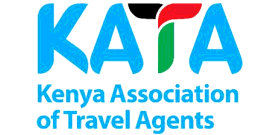 KATA-KQ Partnership: Charting a New Course for African Travel
KATA-KQ Partnership: Charting a New Course for African Travel
A recent power breakfast in Nairobi has set the stage for a transformed travel landscape in Africa. The Kenya Association of Travel Agents (KATA) and Kenya Airways (KQ) joined forces for a Chairman’s Breakfast Meeting at the Mövenpick Hotels & Resorts, marking a pivotal moment for the industry.
This high-level gathering wasn’t just about coffee and croissants; it was a strategic meeting of the minds. KATA members engaged directly with KQ representatives, fostering a dynamic exchange of ideas and feedback on critical issues impacting the travel trade. This direct dialogue signifies a strengthened partnership between the airline and travel agents, paving the way for a more collaborative and prosperous future.
The breakfast meeting served as a platform to address key areas of mutual interest. NDC adoption, a hot topic in the travel industry, took center stage. Discussions revolved around streamlining the integration of NDC technology to enhance booking processes and offer more personalized travel solutions. This focus on technological advancement underscores the commitment of both KATA and KQ to modernize travel operations in Africa.
Flight operations and fleet expansion were also key discussion points. KATA members provided valuable insights into market demands and operational challenges, while KQ shared its strategic plans for route development and fleet modernization. This collaborative approach ensures that airline strategies align with the needs of travel agents and the evolving demands of the African travel market.
The implications of this strengthened partnership are far-reaching for African travel agents. Improved communication and collaboration with KQ will streamline operations, enabling agents to access real-time information, manage bookings more efficiently, and offer enhanced services to their clients. This enhanced efficiency translates to improved customer satisfaction and increased business opportunities for travel agents.
The KATA-KQ partnership also signals a broader shift towards a more integrated and collaborative travel ecosystem in Africa. By working together, airlines and travel agents can leverage their respective strengths to address industry challenges, enhance service delivery, and create a more seamless and rewarding travel experience for passengers.
The Chairman’s Breakfast Meeting served as a powerful reminder of the vital role that KATA plays in driving industry dialogue and collaboration. By bringing together key stakeholders, KATA fosters a dynamic environment for innovation, knowledge sharing, and strategic planning. This proactive approach is essential for creating a more resilient and inclusive travel industry in Africa.
Looking ahead, the KATA-KQ partnership promises to be a catalyst for positive change in the African travel landscape. By fostering open communication, embracing technological advancements, and working together to address industry challenges, airlines and travel agents can unlock new opportunities for growth and create a more vibrant and prosperous future for the African travel sector.
The discussions around NDC adoption hold particular significance for travel agents. As airlines increasingly embrace NDC technology, travel agents need to adapt their systems and processes to remain competitive. The KATA-KQ partnership provides a platform for agents to gain valuable insights into NDC implementation, ensuring they are well-equipped to navigate this evolving landscape.
The insights shared during the breakfast meeting regarding KQ’s fleet expansion plans are also crucial for travel agents. Understanding the airline’s route development strategy and capacity enhancements allows agents to anticipate market trends and tailor their product offerings accordingly. This proactive approach enables agents to capitalize on emerging opportunities and provide their clients with the most relevant and attractive travel options.
The emphasis on enhanced communication and collaboration between KQ and travel agents is a welcome development. By fostering open dialogue and feedback mechanisms, the partnership creates a more responsive and customer-centric approach to travel services. This focus on customer needs will ultimately enhance the travel experience for passengers and strengthen the reputation of the African travel industry.
